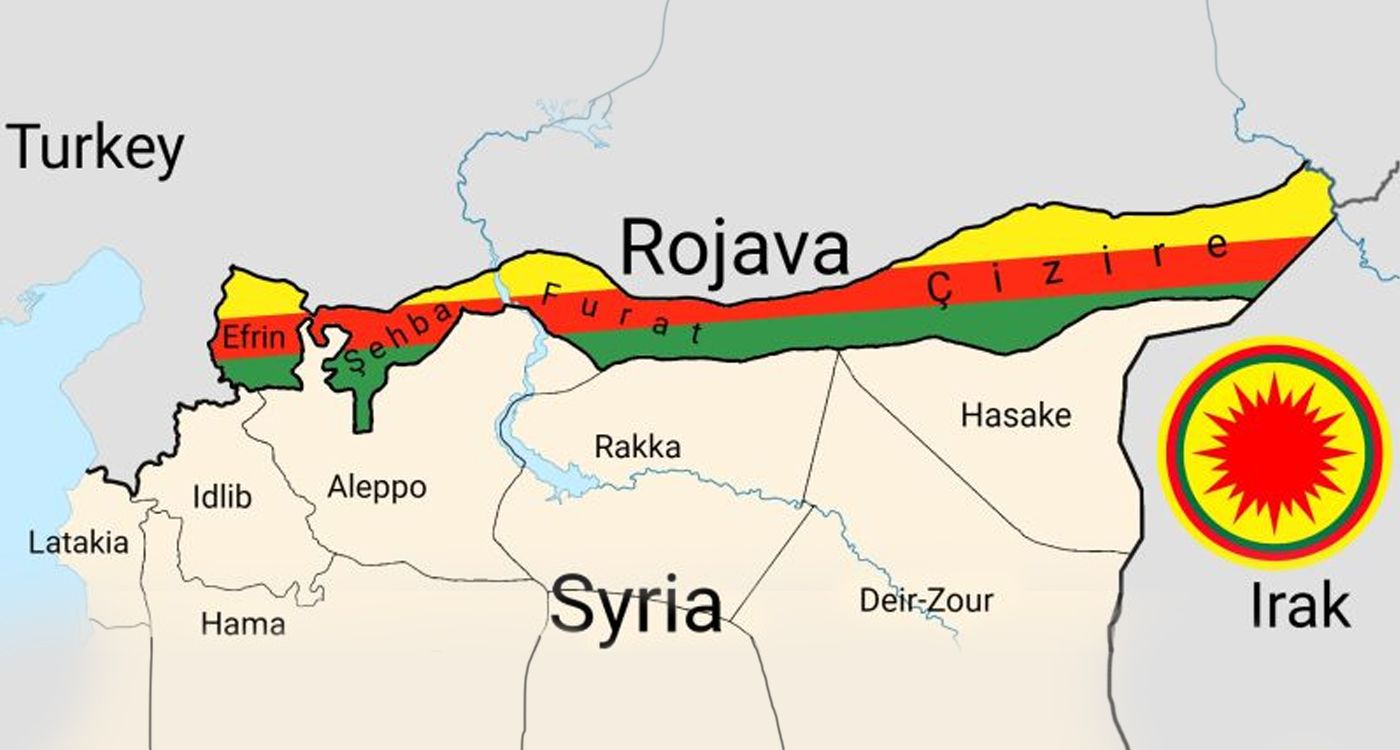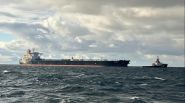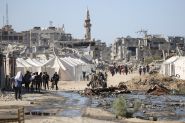- Home
- Middle East
- Rojava, Syria's Kurdish Enclave Under US Shield

Map showing northern Syrian districts. ©X
People of Kurdish descent make up the majority of the population of northeastern Syria. The Kurdish enclave, often called Rojava, is home to an estimated 2 million Kurds, making it the country’s largest ethnic minority.
Rojava encompasses three cantons: Kobane in the middle, Cizre to the east and Afrin in the west. In the past, the three cantons collaborated with numerous domestic and foreign entities to drive out the Islamic State in Iraq and Syria (ISIS).
The Kurdish community was heavily involved in the Syrian civil war and the war against ISIS, which started in 2011 and 2014, respectively. In 2015, Kurdish fighters took control of Kurdish regions when Syrian government troops withdrew from these areas.
In order to subject the territories under the control of a de facto authority, the Democratic Union Party (PYD) established an autonomous administration. As a result, their influence spread to many governorates, including Hasakah, Deir Ezzor, Raqqa and other locations.
The majority of Syria’s oil fields are under the jurisdiction of the autonomous administration, which controlled almost 25% of Syrian territory.
Following unsuccessful talks between Kurdish groups within the Democratic Society Movement to form the West Kurdistan Council, the self-proclaimed administration was established on January 21, 2014.
A social contract dubbed the “Social Contract for the Democratic Federation of Rojava-North Syria” became the constitution of the self-proclaimed administration. The enclave has since become known under its Kurdish name, Rojava.
US Presence
Resolution 2254 (2015) of the UN Security Council adopted a holistic stance to the problems that must have been resolved in order to put an end to the Syrian war and establish stability and true peace.
Consequently, the US-led coalition was established to fight al-Qaeda, keep Russian, Turkish and Iranian influence in check, and confront the threats posed by ISIS detainees and remnants in Syria.
The US presently backs the Kurdish-led Syrian Democratic Forces.
About 900 American soldiers are reportedly stationed in Syria as of August 2022, with the majority of them divided between the country’s eastern oil fields and the al-Tanf camp.
Turks
An economic blockade, persisting attempts at international isolation, opposition to Kurdish militia cooperation with the anti-ISIS coalition and support for Islamist groups hostile to Rojava, are the cornerstones of Turkey’s policy toward the Kurds in Syria.
The Kurdish Workers’ Party (PKK), has long advocated for Kurdish self-rule and is outlawed in Turkey as a terrorist organization. It is also seen by Turkey as the entity that created and expanded the autonomous Kurdish territories in Syria.
The Kurdish dream of self-rule is in jeopardy as Turkish-backed rebels overran Syria and overthrew Bashar al-Assad’s regime.
On December 1, these militants, who identify as the Syrian National Army and have Ankara's support, started capturing the area to the northeast of Aleppo, including the Kurdish-controlled town of Tal Rifaat.
Until political order is established and a new government is formed, there will be no stability in Syria. In the meantime, the US-backed Kurds will be relatively safe as long as US military bases are present in Rojava.
Read more




Comments